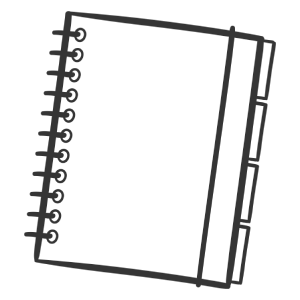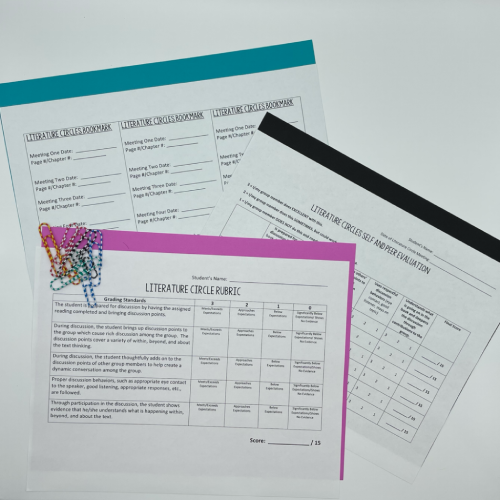Students in my 8th grade Language Arts classrooms selected a famous poet of their choice to research, looking specifically at techniques their selected poet used throughout their poetry. Students then published their own piece of poetry while incorporating in techniques from their mentor poet such as a similar rhyme scheme, use of figurative language, topic etc. It was awesome to see students’ creativity shine through during this project. I would highly recommend doing this poetry project with students. What I loved about it was:
-Students researched a famous poet until they found a poet they connected with. Through this process, students familiarized themselves with the names of many famous poets and read many poems.
-It was different than having students write an “I Am” poem or a structured poem that asks them to insert verbs and adjectives that eliminate creativity. It also is more supportive than telling students to just write whatever type of poetry comes to mind when many students don’t even know where to start. For my students, this was a great blend of support and freedom.
-Students learned about what poets do through inquiry and constructing their own knowledge based on reading poems they were interested in. Through this, they learned about rhyme scheme, figurative language, common themes and topics of poetry, etc.
-Students were excited to share their published pieces with the class. It was a great way for students to read a fully published piece of writing and celebrate the work they have done as writers.
Here are a few published pieces from my class:
“Divergent”
Divergent,
Brains work in outstanding way.
Insurgent,
Fight for beliefs through the days.
Dauntless,
Free, strong, and brave.
Candor,
Honesty is a quality they crave.
Abnegation,
To be one you must be selfless.
Erudite,
Without knowledge you are helpless.
Amity,
You are one for peace on Earth.
Factions,
The ones you are with from birth.
Brains work in outstanding way.
Insurgent,
Fight for beliefs through the days.
Dauntless,
Free, strong, and brave.
Candor,
Honesty is a quality they crave.
Abnegation,
To be one you must be selfless.
Erudite,
Without knowledge you are helpless.
Amity,
You are one for peace on Earth.
Factions,
The ones you are with from birth.
*Coltan’s mentor poet was Edgar Allan Poe, from which he mimicked his rhyme scheme. He also drew on his love for the popular book series, Divergent, Insurgent, and Allegiant for the topic of his poem.
“The Wind has Taken”
I stand on the hill just after night,
the air is chilly, and grass sways.
As I watch a stray leaf flutters by,
crisp from the golden sunlight.
the air is chilly, and grass sways.
As I watch a stray leaf flutters by,
crisp from the golden sunlight.
And I think, what else has the wind taken?
It has swept the seeds across the land,
from country to state, to city to home.
The breeze has brought the life,
to the places they now stand.
And continues to take them to places unknown.
from country to state, to city to home.
The breeze has brought the life,
to the places they now stand.
And continues to take them to places unknown.
The wind has captured the voices of all,
the cries of joy, songs of love, and fits of laughter.
It carries them all, not leaving one behind.
It gathers each one as soon as it’s said,
with the wind there is no after.
the cries of joy, songs of love, and fits of laughter.
It carries them all, not leaving one behind.
It gathers each one as soon as it’s said,
with the wind there is no after.
The wind has taken and carried things that can’t be seen.
It has taken them to a place you can’t always see.
From what I know, this place must be nice,
so for that I hope that someday,
the wind will take me.
It has taken them to a place you can’t always see.
From what I know, this place must be nice,
so for that I hope that someday,
the wind will take me.
*Allison’s mentor poet was Robert Frost. The techniques she incorporated from him into her poem were random rhyming versus a traditional rhyming structure and writing on a topic dealing with nature.
“Perspective”
How do you look at the world?
Is it the same as everybody else,
do we observe everything the same,
or is everything we see different than those around us?
Perspective.
Is it the same as everybody else,
do we observe everything the same,
or is everything we see different than those around us?
Perspective.
My face is like a deer in the headlights. “How do you do that, what did I miss?”
“How don’t you get it, didn’t you see?”
Perspective.
“How don’t you get it, didn’t you see?”
Perspective.
Everything you think, you feel, and what transpired ten minutes ago
influences your view of the world
causing nothing you see to be the same as the person next to you.
Perspective.
influences your view of the world
causing nothing you see to be the same as the person next to you.
Perspective.
The choices you make, where you go, and with whom you converse comes from
your mind.
If all of those things are controlled by your mind, then what is your mind controlled by?
Perspective.
your mind.
If all of those things are controlled by your mind, then what is your mind controlled by?
Perspective.
*Shane Koyczan was Logan’s mentor poet. Repetition of the title throughout the poem, finishing and starting thoughts abruptly, and the use of dialogue were the techniques Logan incorporated in his poem that he noticed in much of Koyczan’s poetry.
I can’t wait to try other minilessons and expose my students to more poetry as the year goes on!






